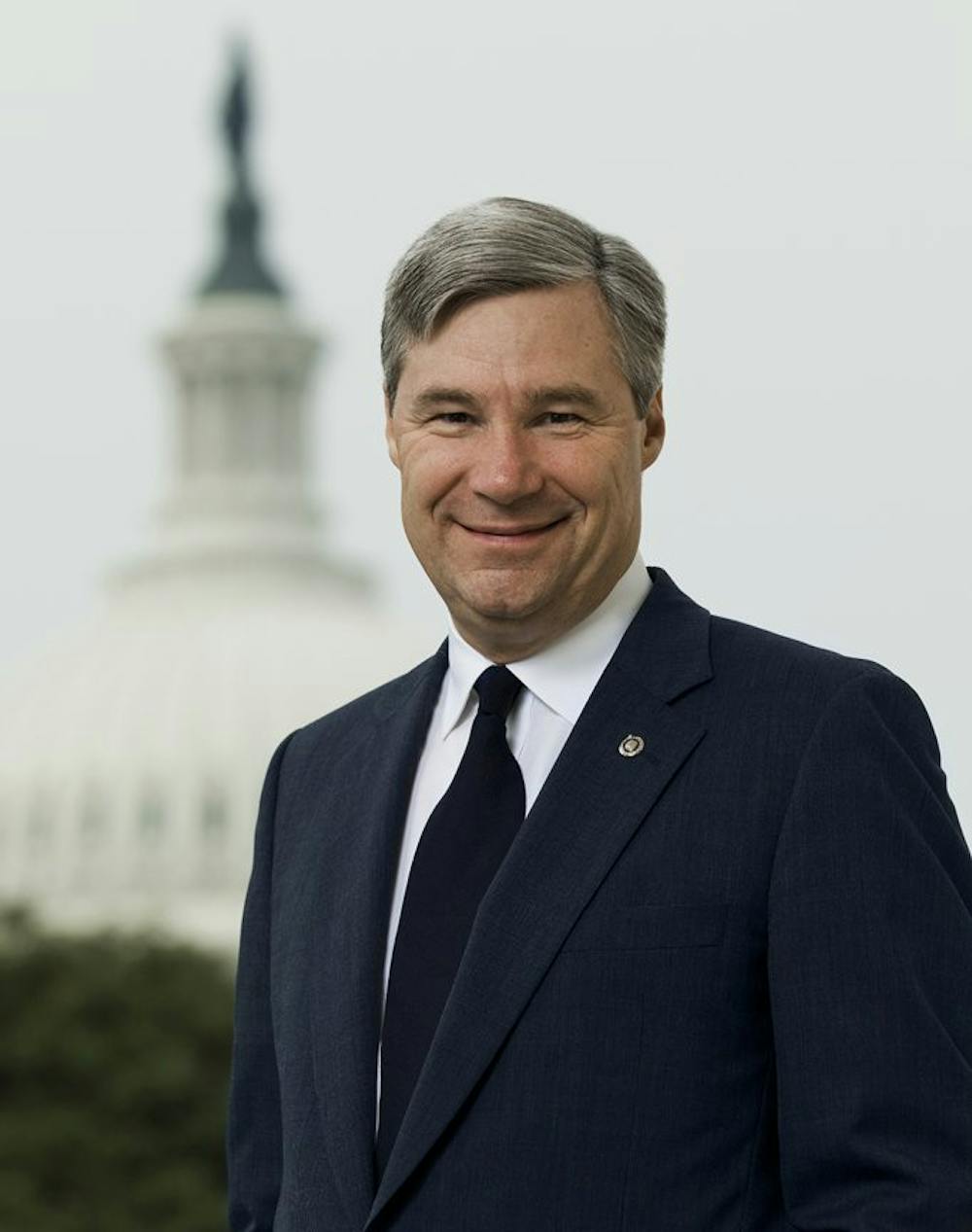Sen. Sheldon Whitehouse D-RI, lamented the power of fossil fuel corporations to limit policy action on climate change in a keynote address Friday at the University.
“We can’t sit around in Congress and wait for the private sector to solve (climate change),” Whitehouse told the audience. “We have to point out that the (Republican Party) is a party that has been captured by the fossil fuel industry.”
Whitehouse attributed the power of fossil fuel interests and the resulting lack of bipartisan movement on climate change policy partly to the landmark 2010 U.S. Supreme Court case, Citizens United v. FEC. The case ruled that the government cannot impose limits on corporate spending on political advertisements; ever since,“not one Republican in the Senate has gotten under one serious bill to do anything about carbon dioxide emissions,” Whitehouse said.
Given the influence of fossil fuel corporations over the Republican Party, Whitehouse emphasized the need to bring climate change to the attention of “good” corporations in order to put pressure on Congress to pass productive climate policy. Despite the fact that many American corporations wield significant power and influence in Washington, none of these companies, with the exception of Patagonia, “puts the slightest bit of effort into getting something done in Congress,” Whitehouse added.
The R.I. Senator has also proposed a bill that would put in place a fee on carbon emissions, which would allocate 20 percent of those revenues toward transitioning low-income and rural households to cleaner energy industries.
Action to prevent climate change can be costly. Paxson commented on the University’s high-cost plan to decarbonize campus Friday in response to Whitehouse’s keynote address, stating that “the transition costs are really high.” She asked how others with lower incomes would be able to manage that transition.
Whitehouse did not have a definite solution but encouraged further action on the issue. “That’s a separate problem that we need to continue to work on,” he said in response.
Lauren Maunus ’19, a member of the climate change activist group Sunrise Rhode Island, attended Whitehouse’s keynote address at the “America’s Climate Change Future: Housing Markets, Stranded Assets, and Entrenched Interest” conference, which was organized by the Rhodes Center for International Economics and Finance, the Institute at Brown for Environment and Society and the Office of President Christina Paxson P’19.
Maunus asked Whitehouse whether he would sign a pledge rejecting contributions from the oil, gas and coal industries, given his strong stance against fossil fuel corporations. The senator responded by saying, “I don’t even take any corporate (Political Action Committee) money at this point,” but he refused to sign the pledge.
Maunus told The Herald that Sunrise has asked Whitehouse multiple times to sign the pledge against fossil fuel money, and that “with the 2020 election coming up, we need to know where our elected officials stand right now.”
Professor of the Practice of Environment and Society Curt Spalding asked Whitehouse if he has seen economic “deficit issues flowing into these climate issues.”
Whitehouse responded that climate change should be considered a natural resource deficit, seen in the same way as the budget deficit. “We worry a lot about deficits in the economic sphere; we are now running a deficit in the natural sphere,” Whitehouse said. The day-long conference also featured conversations regarding coastal properties, climate denial and the state of public opinion on global warming.





